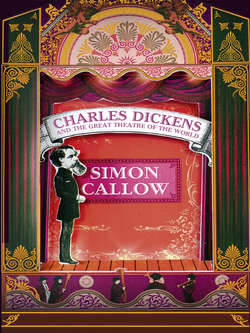Читать книгу Charles Dickens and the Great Theatre of the World - Simon Callow - Страница 6
OVERTURE
ОглавлениеA very small, rather frail child is escorted into a pub in Chatham, in Kent, by a plump, vivacious man. The man, exchanging affable words with the population of the pub, who all know him well, places his child on a table and enjoins him to recite. Though afflicted with a slight lisp, which he will never entirely lose, the child gives a startlingly vivacious rendition of that noted improving lyric, ‘The Sluggard’, one of the Divine Songs for Children from the prolific pen of the Revd Dr Isaac Watts.
’Tis the voice of the sluggard; I heard him complain,
‘You have waked me too soon, I must slumber again.’
As the door on its hinges, so he on his bed,
Turns his sides, and his shoulders, and his heavy head.
‘A little more sleep, and a little more slumber;’
Thus he wastes half his days, and his hours without number;
And when he gets up, he sits folding his hands,
Or walks about saunt’ring, or trifling he stands …
I made him a visit, still hoping to find
He had took better care for improving his mind:
He told me his dreams, talk’d of eating and drinking;
But he scarce reads his Bible, and never loves thinking.
Said I then to my heart, ‘Here’s a lesson for me,’
That man’s but a picture of what I might be:
But thanks to my friends for their care in my breeding;
Who taught me betimes to love working and reading.
The rendition was a great success: ‘the little boy used to give it to great effect, and with such actions and such attitudes,’ said the family maid, Mary. It was a modest debut for the greatest literary entertainer of all time, but the seven-year-old Charles Dickens obviously took the moral of the poem to heart: no human being on the face of the earth ever filled his waking moments to better effect than he, cramming his fifty-eight years with an astonishing variety of performances in a multiplicity of arenas.
